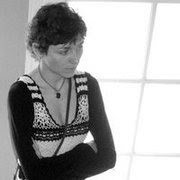This is a post about Community College Women in Computer Science: A Study's Preliminary Results at Grace Hopper Celebration of Women in Computing.
The authors present their preliminary results from studies from community college students around California, aiming to answer the question what makes community college students transfer to 4-year university? That is: What factors determine whether community college students enrolled in a CS1-like course intend to study computer science at a 4-year university?
True or false? There are different motivations for males and females in pursuing computer science as a major, and women just don't value computing. The answer is false. Men were found to have great expectations for success with computing, but there were no gender differences in how much students value computing.
True or false? Family support is critical in choice of major and parental pressure is based on gender stereotypes. Also false. Family support was not critical, but peer encouragement was very important for both women and men in pursuing science.
True or false? Women's under-representation in computer science majors is due to lack of computer use an lack of computer game play. This one is true. Intention to pursue computer science was very important, and exposure to computing and computers (including gaming) was associated with intention.
The authors presented work collected over a true longitudinal study over two years, looking at demographics as well as social factors that may influence students' staying in computing after community college. They sampled the students three times: at time of enrollment, half-way through the program, and at the end of the two-year program.
Women were more likely to be older, have had a degree already, have a mother working in computing, and have had a programming mentor when enrolling in the introductory programming course, compared to male students. Whether or not a woman was comfortable talking to her professor did not affect her intention to pursue computing (and the other way around). Women thought computer programming was like thinking.
Men had a greater intention to pursue computer science at a four-year university, were more likely to play video games longer, and have mothers with no BS/BA, compared to female students. Men thought computer programming was creative.
How do we increase the number of women in computer science?
1) Men see computer science as creative, but women don't -- they see it as thinking. How can we bring creativity to women?
2) Men are influenced by computing experiences, including video games, in their intention to pursue compter science. How do we use games to help intention to pursue a bachelors (or higher) degree in computing? How do we get gals into games? How do we provide early programming opportunities to gals?
3) Men report that they get more support from their peers. How do we encourage peer support for women?
And this leads to the awesomest idea of the conference:
How do we use video games (especially competitive ones) to bring early interventions to women?
I'm envisioning a League of Legends clan for high school girls!
One woman's path through doula training, childrearing, and a computer science Ph. D. program
Subscribe to:
Post Comments (Atom)




No comments:
Post a Comment